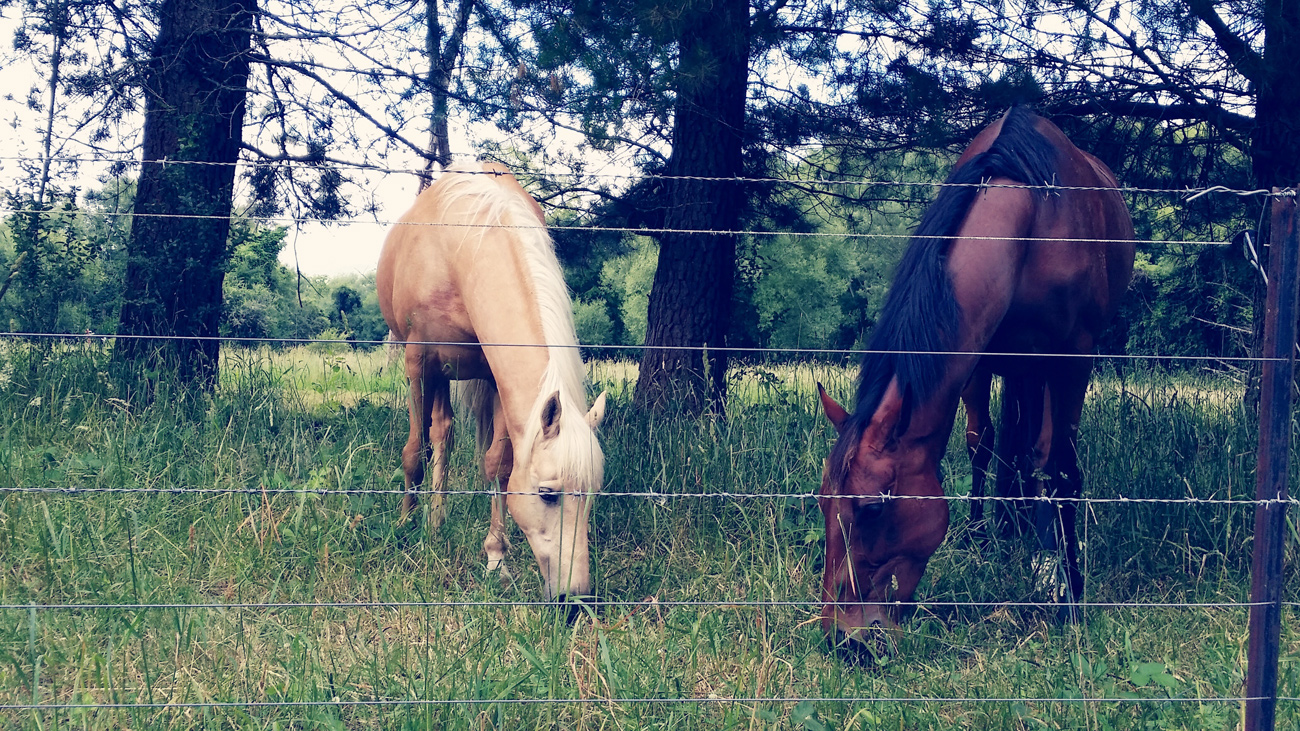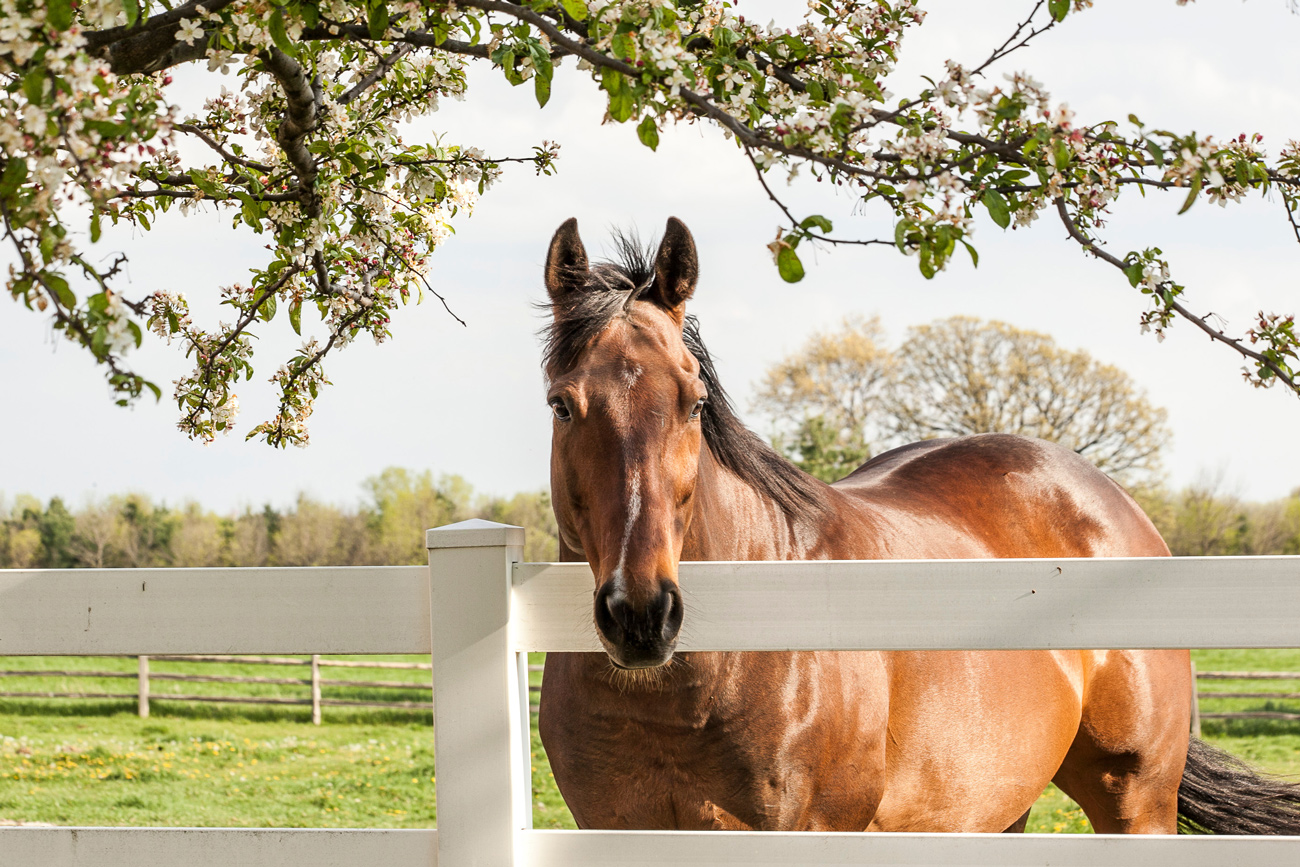When it comes to choosing the type of horse fencing for your barn, there are many different factors that take place, from cost to safety to ease of installation. The horse fencing options are as diverse as horse breeds! You can choose from post and rail, electric, steel, post and wire, wire, and more. Each has its advantages and disadvantages which should be considered prior to beginning this project! Below, we have compiled some pros and cons of each fence type mentioned above.
Post and Rail
This is your classic horse fence! Typically, wooden rail fencing is constructed of wooden boards, nailed into wooden fence upright posts. This is still one of the more popular choices but we are seeing more cases these days where people are using vinyl and PVC, providing a cheaper option that’s often indistinguishable from wood. Although the post and rail are one of the most desired looks by horse owners, you also have to be very careful when installing it! You should make sure the smoothest side of the fence is facing your horse. This will not only reduce the chance of your horse knocking the rails out but will also mean that there is no sharp nail ends that could harm your horse.
Pros: It adds aesthetic value to your barn. Looking good on both narrow and wide properties and even on flat and sloping terrains. Post and rail are also extremely durable, being able to withstand all types of weather conditions making it super cost-effective. People also love how customizable this option is. You can choose the height of each pole, width, and more!
Cons: Unfortunately, post and rail fencing offers much less privacy than other options out there. Anyone driving or walking by can see exactly what goes on in your yard. To some, this is not a big deal while for others this is a deal breaker.
Electric Fencing
Electric fencing consists of tape with wooden or plastic posts. When installing electric fencing, wooden posts are used for more “permanent” electric fencing while plastic ones tend to be used for more of a “temporary” one. You can purchase the tape in various sizes and is more popular with temporary fencing.
Pros: It is more visible than traditional electric wire which is something to consider when you are trying to keep the horse fenced in. It is also super easy to install and the tape will never rust. You can also expect electric fencing to last 10-25 years depending on the type of fence you are using.
Cons: Typically, you should only use electric fencing in larger areas that way it allows your horses enough space to stay away from the fence and still have plenty of space to graze. You have to keep environmental debris from touching the fence. If this happens it could potentially drain power which would leave the fence weak and force you to have to walk the fence line!
Steel Fencing
One of the top choices for horse fencing is steel. It is strong and reliable and also is entirely smooth around making it much safer for your horse. The upkeep on this type of fencing is fairly minimal besides the occasional repainting it may need.
Pros: Much safer option than some of the other fencing out there. Steel fencing is aesthetically pleasing while also being low maintenance.
Cons: Installation can be quite expensive and planning must be exact as modifications can be fairly difficult. Steel fencing can also be a bit harder for your horse to see so ensuring that it is visible is a must.

Post and Wire
These fences are less expensive than rail fences, are very strong, and have a nice appearance and good visibility
Pros: Installation is fairly easy and you can easily keep other wildlife out!
Cons: Wire fences must be tightened periodically to maintain the proper tension.
Wire
Wire fencing can be appealing to some because of the cost but when it comes to safety it is not our top choice. Not only is it hard for horses to see but it also does not withhold against your horses rubbing or scratching on the fence.
Pros: It is extremely easy and inexpensive to install!
Cons: Wire fencing is difficult for horses to see. This can be highly dangerous because your horse could potentially collide with the fence resulting in injury. It also warps easily, and usually needs constant repair or upkeep.
When it comes down to building your horse fence something to consider is the terrain! Take a good walk around your property so you know if you have to plan for a slope in the ground or a large tree at the corner. Something also to consider is fence height. Typically the fence height you should install is 54 to 60 inches above ground level. Something to go by is building your fence at wither height. This ensures that your horse will not flip over it if they get riled up!
Choosing the right type of horse fence for your barn can take time to plan out. Ensuring that you choose fencing that is affordable and can serve the right purpose for you is dire. There are many different horse fencing options out there depending on what you’re looking for in cost, appearance, and other factors like safety and ease of installation are all things to consider!
